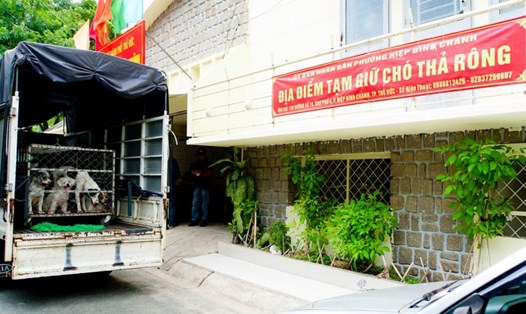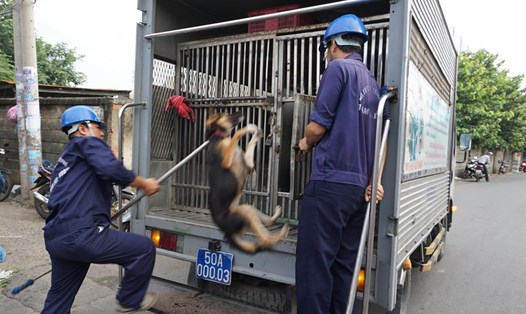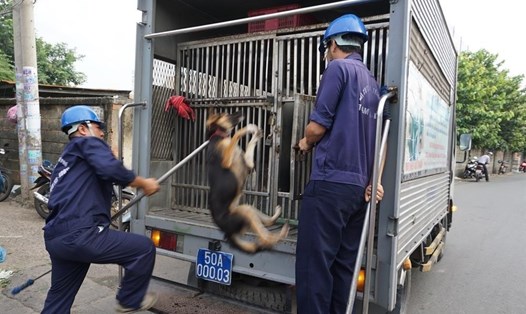The Ho Chi Minh City People's Committee has just issued a decision approving the "rabies prevention and control program for the period 2026 - 2030".
In the period of 2026 - 2030, the City aims to manage over 90% of households raising dogs, cats and all livestock each year; vaccinate over 90% of dogs and cats against rabies.
Ho Chi Minh City also requires 100% of communes, wards and special zones to monitor cases of dogs and cats infected with or suspected of having rabies and have at least one vaccination point for rabies vaccine and serum for humans.
In 2026, the city strives to build at least 20 communes, wards, and special zones for rabies prevention. From 2027 - 2030, at least 10 qualified units will be added each year.
By 2030, Ho Chi Minh City will have at least 60 communes, wards and special zones recognized as disease-free zones and no more deaths from rabies in humans.
dog and cat owners must declare their breeding to the People's Committee at the commune level to be included in the management system.
The owner is responsible for keeping the animal in the family's premises, ensuring hygiene and not polluting the surrounding environment.
When taking a dog or cat out of the house, the owner must chain or muzzle and always have someone to walk them to avoid endangering the community.
Livestock must be fully vaccinated against rabies according to regulations. owners need to monitor the health of dogs and cats and when detecting unusual signs, they must keep them separate and immediately report to the People's Committee at the commune level or the Regional Livestock - Veterinary Station.
In case the free-range dog is arrested, the owner must bear all costs related to raising, handling or destroying it. If dogs or cats attack and cause damage to others, the owner must compensate according to the law.
The People's Committees of communes, wards and special zones are responsible for making a list of dog and cat management households in the area and periodically reporting data to specialized agencies at least twice a year.
Localities must strictly handle cases of not reporting raising dogs and cats; not vaccinating against rabies; freeing feathers or not muzzles; as well as cases of keeping livestock at risk of spreading the disease.
Depending on the actual situation, the People's Committee at the commune level can establish a team to catch free-range dogs and handle animals suspected of being rabies.
In addition, the Department of Animal Husbandry and Veterinary Medicine of Ho Chi Minh City will apply information technology in the management of dog and cat flocks; invest, complete and guide the use of an online reporting system to monitor the total flock, epidemic situation and progress of rabies vaccination across the city.









